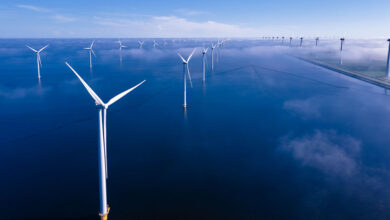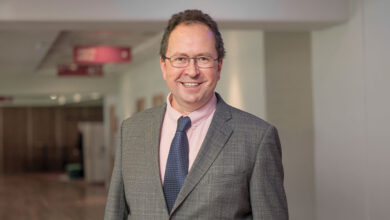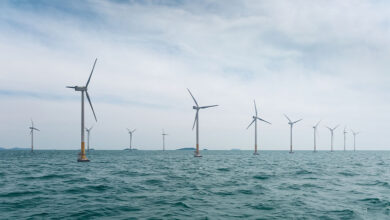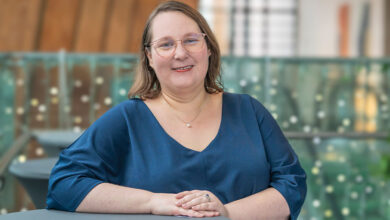Renewable energy research institutions in the Republic of Ireland, Northern Ireland and Scotland
Republic of Ireland
Energy Research Group (ERG) University College Dublin
ERG has existed since 1975, working on research and education, principally in the areas of energy utilisation in buildings, sustainable architectural design and healthy environments. Over the past two decades most of the ERG’s activities have been funded by European Commission research and support action programmes. Listed in its past and present research fields is the application of solar and other renewable energy sources in buildings.
Supports for ERG include the Urban Institute Ireland’s built environment laboratory, which provides facilities for modelling, measuring and field monitoring, supporting renewable energy research.
Research interests:
• energy management of large scale urban projects;
• energy and urban planning in restructuring areas; and
• promoting the integration of the renewable energy sources and rational use of energy measures in historic buildings.
Contact details:
UCD Energy Research Group Richview, Clonskeagh, Dublin 14
Tel: +353 (0)1 716 2721
Fax: +353 (0)1 716 2690
Email: info@erg.ucd.ie
Web: http://erg.ucd.ie/
ERG directors: Vivienne Brophy and Paul Kenny
Hydraulics and Maritime Research Centre (HMRC) University College Cork
The HMRC was established in 1979 and is a centre of excellence within Ireland for ocean renewables and coastal engineering. The centre, with staff from a wide range of engineering backgrounds, is principally a dedicated research centre but also offers teaching.
It aims to become an international centre of excellence for ocean energy research, training, consultation and support. In June the HMRC held the second forum on the economics of marine renewable energy.
Research interests:
• wave energy technology development (model testing and field testing)
Contact details:
Hydraulics and Maritime Research Centre
University College Cork, Cork
Tel: +353 (0)21 4250021
Email: hmrc@ucc.ie
Web: www.ucc.ie/research/hmrc
Director: Dr Anthony Lewis
Contact: Mary Ryan/Cora Edwards
Environmental Research Institute University College Cork
The Environmental Research Institute was established in 2000 and is aimed at supplying environmental research and education at UCC. The institute brings together expertise in biological, chemical and environmental sciences as well as environmental engineering, energy and law. The institute has over 150 researchers and five thematic research areas, one of which is sustainable energy and environmental engineering.
Research interests:
• wind energy and hydro power;
• ocean energy;
• solar (photovoltaic) energy;
• energy use in buildings;
• transport and biofuels;
• energy policy; and
• greenhouse gas flux.
Contact details:
Environmental Research Institute (ERI) University College Cork, Lee Road, Cork
Tel: +353 (0)21 490 1931
Fax: +353 (0)21 490 1932
Email: eri@ucc.ie
Web: www.ucc.ie/en/eri
Director: Prof Alan Dobson Contact: Helen McMahon
Energy Research Centre National University of Ireland Galway
The Energy Research Centre is focused on research, education and outreach in the fields of energy and environment. Established in 2007, the centre has over 100 academic staff and researchers from various colleges as well as national and international collaborators. It is the first integrating energy research centre in Ireland, and is divided into four thematic research groups: bioenergy research; renewable resources; energy efficient technologies; energy and society.
Research interests:
Bioenergy research group
• microbial fermentations and digestion of organic feedstocks;
• biocatalytic fuel cells; and
• combustion chemistry.
Energy efficient technologies group
• energy efficient wastewater treatment;
• power conversion technologies;
• energy and buildings;
• energy storage;
• efficient materials technology; and
• solar capture.
Renewable resources group
• high-resolution bathymetric data for massively parallelised hydrodynamic modelling code to infer locations in the offshore zone which would be optimum for tidal energy.
Contact details:
Ryan Institute, Martin Ryan Building
NUI Galway, University Rd, Galway
Tel: +353 (0)91 495061
Email: energy@nuigalway.ie
Web: www.nuigalway.ie/energy
Director: Professor Vincent O’Flaherty
Contact: Dr Sarah Knight
Competence Centre for Bio-refining and Bio-energy National University of Ireland Galway
Based within the Ryan Institute for environmental, marine and energy research, the centre was established in 2010 to bring stakeholders together to support a sustainable and competitive biomass industry. The centre involves partners from NUI Galway, UCD, UL and Trinity College Dublin. It was one of a number of competence centres established as part of the Government’s strategy for science, technology and innovation (2006-2013).
Research interests:
• next-generation feedstock analysis;
• conversion process technology; and
• commercialisation.
Contact details:
Competence Centre for Bio-refining and Bio-energy
Room 121, Orbsen Building
NUI Galway, University Rd, Galway
Tel: + 353 (0)91 493548
Fax: + 353 (0)91 495515
Email: caroline.murphy@ccbb.ie
Web: www.ccbb.ie
Technology Leader: Bart Bosnall
Contact: Caroline Murphy
Marine Institute, Galway
Established by the 1991 Marine Institute Act, the Marine Institute is the national agency responsible for marine research technology development and innovation. The institute operates an ocean energy test site with SEAI. Real time wave information is available for the Galway Bay test site, which is available for all developers of wave energy devices who have a prototype that is built for open water testing in a relatively sheltered location.
Research interests:
• WAVETRAIN II;
• ORECCA: offshore renewable energy conversion platforms, coordination action;
• MARINA Platform: marine renewable integrated application platform;
• optimisation of mooring systems for wave energy arrays; and
• Galway Bay wave energy test site.
Contacts:
Marine Institute Headquarters
Rinville, Oranmore, Co. Galway
Tel: +353 (0)91 387 200
Fax: +353 (0)91 387 201
Email: institute.mail@marine.ie
Web: www.marine.ie/home/OceanEnergy.htm
Chief Executive: Dr Peter Heffernan
Environment Research Group Trinity College Dublin
The Environment Research Group is within the Department of Civil, Structural and Environmental Engineering. The group has five research project themes, one of which is alternative energy. The current alternative energy projects are coordinated by Professor Margaret O’Mahony, Chair of Civil Engineering, and Dr Laurence Gill, senior lecturer and head of civil engineering.
Research interests:
• thermochemical conversion of biomass to bio-fuels;
• modelling carbon tax policy; and
• economic and energy balance of energy crops.
Contact details:
Department of Civil
Structural and Environmental Engineering
Museum Building, Trinity College Dublin, Dublin 2
Tel: +353 (0)1 896 1457
Fax: +353 (0)1 677 3072
Email: civeng@tcd.ie
Web: www.tcd.ie/civileng/research/environmental/energy.php
Project co-ordinators: Professor Margaret O’Mahony
Laurence Gill
Energy Policy Research Centre (EPRC) Economic and Social Research Institute (ESRI)
The EPRC is an energy policy research centre funded by a consortium of stakeholders which include the Department of Communications, Energy and Natural Resources. The centre has done substantial work on economic
models for research, including an electricity model covering the all-island electricity sector, energy demand from the transport sector, Irish emissions (particularly greenhouse gas emissions), and an integrated assessment model of climate change for analysis of international climate policy.
It has also worked on energy forecasts out to 2020 and research on domestic and European climate policy. The centre is part of the ESRI, which is an independent research institute.
Research interests:
• climate change: impacts and adaptations in Ireland;
• developing a dynamic model of electricity generation;
• energy efficiency in manufacturing;
• global warming and energy – the role of emissions trading;
• security implications of climate change; and
• transport forecasting.
Contact details:
Energy Policy Research Centre
ESRI, Whitaker Square
Sir John Rogerson’s Quay, Dublin 2
Tel: +353 (0)1 863 2000
Fax: +353 (0)1 863 2100
Email: admin@esri.ie
Web: www.esri.ie
Contact: Professor John FitzGerald
Northern Ireland
Centre for Sustainable Technologies University of Ulster
The Centre for Sustainable Technologies, part of the School of the Built Environment, is a multi-disciplinary research centre focused on sustainable renewable energy, building design, construction materials, transport and environmental modification design. It consists of over 30 academics and researchers. The centre contains facilities for energy research, highway engineering research, architecture, river hydraulics and hydropower research and has a solar simulator.
Research interests:
• biomass and bioenergy; and
• solar thermal and PV systems
Contact details:
Centre for Sustainable Technologies
School of the Built Environment
University of Ulster, Shore Road
Newtownabbey, Co. Antrim, BT37 0QB
Tel: +44 (0)28 9036 8566
Email: nj.hewitt@ulster.ac.uk
Web: www.cst.ulster.ac.uk
Contact: Professor Neil Hewitt
Agri-Food and Biosciences Institute (AFBI)
AFBI was established in 2006 through an amalgamation of the Department of Agriculture and Rural Development’s Science Service and the Agriculture Research Institute of Northern Ireland. The institute provides scientific research and services to government, nongovernmental and commercial organisations.
Within AFBI a Renewable Energy Centre of Excellence is currently being developed at Hillsborough. £3.7 million has been allocated to the renewable energy project at the centre, funded by the environment and renewable energy funding package.
AFBI’s environment and land use development research projects:
• biofuel crops;
• bioremediation;
• anaerobic digestion; and
• biomass crops.
Research interests to be developed over the next two years at the Renewable Energy Centre of Excellence:
• evaluation of short rotation coppice (SRC) willow production with bioremediation of dirty water;
• woodchip drying and storage;
• biomass heating systems;
• other forms of forest biomass production;
• anaerobic digestion of animal manure;
• heat recovery from cooling systems (freezers, milk coolers etc);
• demonstration of other renewable energy technologies; and
• demonstration of energy saving design and technology.
Contact details:
Large Park, Hillsborough, Co. Down, BT26 6DR
Tel: +44 (0)28 9025 5689
Fax: +44 (0)28 9025 5035
Email: info@afbini.gov.uk
Web: www.afbini.gov.uk/index/services/servicesspecialist-advice/renewable-energy.htm
Chief Executive Officer: Dr Seamus Kennedy
Internal Combustion Engines Research Group (ICERG)
Queen’s University Belfast
ICERG is a research group within the School of Mechanical and Aerospace Engineering. This school was rated one of the top 10 mechanical engineering schools in the 2008 research assessment exercise.
Within the ICERG cluster renewable energy is one of its five principal research areas.
Research interests:
Internal combustion engines
• landfill gas;
• liquid bio-fuels; and
• wood gas
Contact details:
School of Mechanical & Aerospace Engineering
Queen’s University, Ashby Building
Stranmillis Road, Belfast, BT9 5AH
Tel: +44 (0)28 9097 4133
Fax: +44 (0)28 9096 1729|
Email: r.douglas@qub.ac.uk
Web: www.qub.ac.uk/schools/SchoolofMechanicalandAerospaceEngineering/Research/ICERG
Contact: Professor Roy Douglas
Institute of Agri-Food & Land Use (IAFLU)
Queen’s University Belfast
IAFLU provides undergraduate and postgraduate programmes as well as national and international research on environmental, food safety and nutritional issues. The institute has links with many international research groups in Europe, the US, Canada and China, and a high proportion of research is funded by competitively won proposals submitted to international programmes. Within its environmental economics research pillar there is ongoing research into the economics of energy and urban land use.
Research interests:
Energy and urban land use
• economics of conventional versus renewable energy: the willingness to pay to stimulate the production of renewable energy and the willingness to adopt more energy efficient behaviours.
Contact details:
Institute for Agri-Food & Land Use
Medical Biology Centre
Queen’s University Belfast
97 Lisburn Road, Belfast, BT9 7BL
Tel: +44 (0)28 9097 5787
Fax: +44 (0)28 9097 5877
Email: sobb.office@qub.ac.uk
Web: www.qub.ac.uk/schools/InstituteofAgri-FoodLandUse
Director: Professor Chris Elliott
Institute of Spatial and Environmental Planning
Queen’s University Belfast
The Institute of Spatial and Environmental Planning is one of three research clusters in the School of Spatial Planning Architecture and Civil Engineering in the university. In the 2008 research assessment exercise the School of
Planning rose by eight places in the UK rankings and is currently rated 9th in Russell Group submissions. The ‘Delivering Renewable Energy under Devolution’ project is one of nine research projects currently listed on its web page.
Research interests:
Delivering Renewable Energy under Devolution
• The aim of the proposed study is to assess the impacts of devolution in the UK on the provision of renewable energy (in partnership with Cardiff University, Robert Gordon University, Aberdeen and the University of Birmingham).
Contact details:
Institute of Spatial and Environmental Planning
School of Planning, Architecture
and Civil Engineering
David Kerr Building, Queen’s University
Belfast, BT9 5AG
Tel: +44 (0)28 9097 4006
Fax: +44 (0)28 9097 4278
Email: space@qub.ac.uk
Web: www.qub.ac.uk/research-centres/TheInstituteofSpatialandEnvironmentalPlanning
Director of Research: Professor Frank Gaffikin
Contact: Dr Geraint Ellis
Electric Power and Energy Systems Cluster
Queen’s University Belfast
The Electric Power and Energy Systems Cluster, which is part of the School of Electronic, Electrical Engineering and Computer Science, focuses on problems related to distributed sources of energy and their integration into power networks. It collaborates with national and international research centres and has industrial sources of funding. The cluster collaborates on all-Ireland energy research initiatives such as the all-Ireland Energy Research Council.
Research interests:
Electric power and energy systems
• SUPERGEN1 flexible network and SUPERGEN3 energy storage consortia, committed to delivering solutions to change how electrical transmission and distribution networks operate;
• transient and dynamic stability, load control bio-diesel generation and networks to facilitate expansion of renewable energy generation; and
• UK-China joint research consortium focussing on sustainable security of electric power supply systems considering renewable energy technologies.
Contact details:
School of Electronic, Electrical Engineering and Computer Science
Queen’s University Belfast
Ashby Building, Stranmillis Road
Belfast, BT9 5AH
Tel: +44 (0)28 9097 5437
Fax: +44 (0)28 9066 7023
Email: s.katic@qub.ac.uk
Web: www.qub.ac.uk/research-centres/EPES
Research Director: Haifeng Wang
Contact: Sonia Katic
Environmental Engineering Research Centre
Queen’s University Belfast
The Environmental Engineering Research Centre, part of the School of Planning, Architecture and Civil Engineering, is inter-disciplinary. One of its two overarching research themes is marine renewable energy. Current funding of marine renewable energy has exceeded £2 million for 2009-2014. Among the research facilities which the centre enjoys (with other institutes in the university) is the marine laboratory at Portaferry, used for testing marine technology at prototype and model scale.
Research interests:
Coastal and Hydraulic Engineering
• tidal stream engineering; and
• environmental impact of marine renewables on coastal processes.
Contact details:
Environmental Engineering Research Centre
School of Planning, Architecture and Civil Engineering
Queen’s University, Belfast, BT9 5AG
Tel: +44 (0)28 90974679
Fax: +44 (0)28 90974278
Email: c.maslowski@qub.ac.uk
Web: www.qub.ac.uk/research-centres/eerc
Director of Research: Professor Trevor Whittaker
Contact: Carole Maslowski
Scotland
Energy Academy Heriot Watt University (Edinburgh)
The energy academy at the Heriot Watt University, Edinburgh, is a pan university academy which focuses on energy research such as solar energy, energy-focused materials and energy economics. The academy has initiated a joint research initiative, the Edinburgh research partnership, with the Edinburgh University. Research facilities in the academy can be accessed by companies for their own use. Heriot Watt University offers a large number of energy-related undergraduate and postgraduate opportunities.
Research interests:
• solar energy;
• wave and tidal energy;
• wind and marine energy; and
• advanced energy materials.
Contact details:
Energy Academy, Heriot Watt University
Edinburgh, EH1 4AS, Scotland
Tel: +44 (0)131 451 3586
Fax: +44 (0)131 451 3127
Email: andy.liken@pet.hw.ac.uk
Web: www.energy.hw.ac.uk/index.cfm
Contact: Dr Andy Liken
Head of Energy Academy: Professor Patrick Corbett
Institute for Energy and Environment
University of Strathclyde
The institute for energy and environment is based within the Electronic and Electrical Engineering Department and is one of the largest power engineering and energy technology university research groups in Europe.
There are four research themes within the institute which includes renewable energy technology; and high voltage technology and electrical plant diagnostics. The renewable energy technology group was established in 2007.
Research interests:
• solar photovoltaic;
• wind energy;
• energy storage; and
• electric vehicles.
Contact details:
Institute for Energy and Environment
Department of Electronic and Electrical Engineering
University of Strathclyde
Royal College Building, 204 George Street
Glasgow, G1 1XW
Tel: +44 (0)141 548 2268
Fax: +44 (0)141 548 4872
Email: InstEE@eee.strath.ac.uk
Web: www.strath.ac.uk/eee/research/iee
Contact: Jennifer McKenzie
Professor of Renewable Energy Technologies: David Infield
Glasgow Sustainable Development Network
Glasgow University
Within the Glasgow Sustainable Development Network there is the energy cluster, which has a diverse range of staff working on a number of research projects. The cluster is one of five within the sustainable development network. It is developing partnerships with companies and formulating proposals in micro-renewables. Within the energy cluster there are eight research subsections.
Research interests:
• micro-generation
• solar and bioenergy;
• carbon;
• water; and
• wind
Contacts:
Sustainable Development Network,
10 The Square, University of Glasgow
Glasgow, Q12 8QQ
Email: Sustainadmin@glasgow.ac.uk
Web: www.gla.ac.uk/research/az/glasgowsustainabledevelopmentnetwork/researchclusters/energycluster
Energy research cluster champion: Professor Andy Knox
Contact: Mrs Lauren Roberts
Institute for Energy Systems
University of Edinburgh
The institute for energy systems is a multi-disciplinary research institute within the University of Edinburgh’s School of Engineering. It is one of the five joint research institutes (JRIs) in the Edinburgh research partnership. The institute provides post-graduate opportunities and has five integrated research areas and a current research portfolio of £10 million.
Research interests:
• marine energy;
• power systems;
• energy and climate;
• machines and power electronics; and
• innovation and policy.
Contacts:
Institute for Energy Systems
School of Engineering, University of Edinburgh, Kings Buildings Mayfield
Road, Edinburgh, EH9 3JL
Tel: +44 (0) 131 650 5646
Fax: +44 (0) 131 650 6554
Email: ies.contact@see.ed.ac.uk
Web: www.see.ed.ac.uk/research/IES/
Head of Institute: Professor Ian Bryden
Contact: Pauline Clark
Scottish Energy Centre
Edinburgh Napier University
The centre was established in 1984 and has 15 researchers involved in renewable energy research projects. The centre has close links with other centres in the university. Staff in the centre have experience in working on research contracts on behalf of public and private institutions and organisations, and the centre has expertise in the field of energy diagnostics and modelling and renewables integration.
Research interests:
Low and zero carbon technologies such as:
• wind energy;
• micro-hydro energy;
• biomass;
• CHP;
• fuel cell; and
• solar energy.
Contacts:
Scottish Energy Centre
Institute for Sustainable Construction
Edinburgh Napier University, 42 Colinton Road
Edinburgh, EH10 5BT
Tel: +44 (0) 131 455 2253
Fax: +44 (0) 131 455 2239
Email: sec@napier.ac.uk
Web: www.napier.ac.uk/sec
Contact: John Currie





